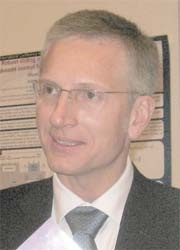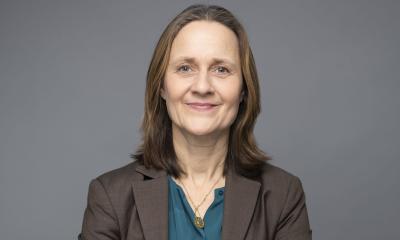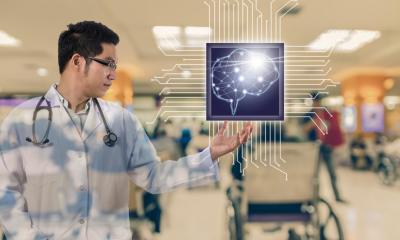Global perspectives on diabetes
Despite Hurricane Amma storming over Prague, hundreds of medical specialists paid little attention when they attended the 1st International Conference on Advanced Technologists and Treatments for Diabetes (ATTD), observed our Russian correspondent Olga Ostrovskaya, reporting on the International Conference on Advanced Technologies & Treatments for Diabetes (ATTD) in Prague (ATTD) held in Prague.

‘Our meeting aims to bring together developers of new technologies to treat diabetes, from the academic world and industry, and diabetes professionals,’ said Professor Tadej Battelino, renowned endocrinologist from Slovenia. He added that the conference would hopefully acquaint clinicians and researchers working on diabetes, endocrinology and metabolism with techniques for new treatments.
‘These technologies are used by American specialists more widely than European,’ he said, and it’s not right. The conference was his idea, and he chaired it with Professor Moshe Phillip (Israel).
Lectures on global perspectives of technology and nanomedicine in diabetes research were aired to stimulate debate about insulin analogues. Pro their use was Professor T Danne (Hanover, Germany), who said that shot-acting insulin analogues are safe and more comfortable for patients. Against, was Professor F Holleman (The Netherlands), who, underlined the contra-indications. ‘Use analogues? Only incidentally!’ he exclaimed.
During our attendance, European Hospital interviewed Dr Thorsten Petruschke, Director of Medical, Clinical and Scientific Affairs, Bayer HealthCare Diabetes Care Europe, about the firm’s latest developments. He pointed out Bayer’s Contour Link blood glucose meter that wirelessly transmits the patient’s current blood glucose data to a Medtronic insulin pump, which then calculates the bolus insulin dose. In addition, the blood glucose values are used to calibrate continuous glucose measurement with the Medtronic system, which determines the glucose content in the intercellular fluid, he added. ‘Any system for blood glucose measuring has to meet extremely high safety standards,’ he stressed. ‘Bayer Healthcare invests over ?30 million a year in Diabetes Care research and development to further improve the precision and safety of blood glucose measurement. Just a few months ago, our new R&D Centre, in Tarrytown, New York, came on stream, providing state-of-the-art conditions to work on these topics.’
Asked whether some developments are only technical gadgetry, Dr Petruschke pointed out that, in the medical market the safety of diabetics is always top priority. ‘What may look like a technical gadget can represent a significant factor in making daily life easier for diabetics. Take, for example, blood glucose meters such as our Contour or Breeze 2 with No Coding technology: a study conducted by Raine in the USA has shown that one in six diabetics codes his or her blood glucose meter incorrectly. So something that looks like a small additional benefit can actually be of crucial importance for individual patients when it comes to avoiding hypoglycaemia.’
Indeed, patient training was a big topic in Prague. ‘We [Bayer] are intensively involved in patient training. In this, it is impossible to overstate the importance of diabetes nurses. They are important contacts for diabetics and are not only trained in the use of medical technology but also play a key role in motivation and compliance, which is why we support, for example, the Federation of European Nurses in Diabetes (FEND). ’ Bayer, he said, holds discussion forums for an international exchange of information. The company also frequently establishes direct contact with diabetics to ensure its developments actually meet their needs.
In his opinion, the development of telemedicine for diabetics provides an interesting additional benefit for patients and doctors. ‘Real-time transfer of the measured data to a central server makes it possible for the attending doctor to adapt the treatment and provide better care for patients. Interesting results from a pilot project were presented in Prague.’ Home-caring offers many options, he added, which is still in early development. ‘What direction it will take will naturally depend not only on the technical possibilities but also many other factors, including healthcare policies.’
30.04.2008





